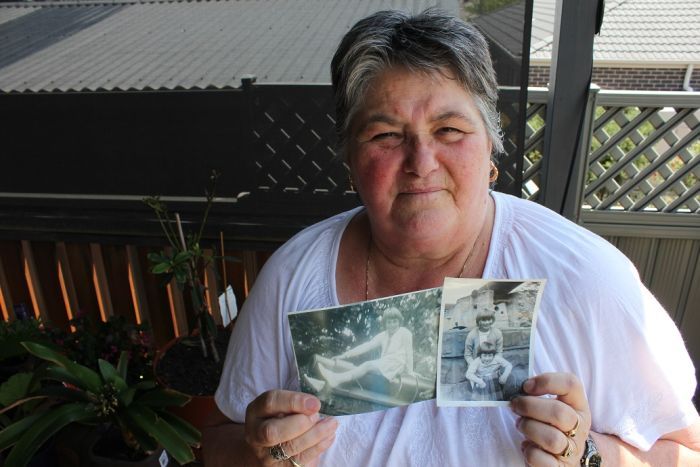Abuse Survivors in Limbo As Institutions Grapple with Redress Scheme
By Charlotte King
A former resident of a children's home in Ballarat says she has been told she may have to wait more than two years for compensation if the institution decides not to opt in to the voluntary National Redress Scheme. Cheryl Bihari, who was placed in Ballarat Orphanage in 1963, said she was seven years old when she was sexually assaulted by the superintendent soon after she arrived in the home. Ms Bihari said applying for redress was in itself a traumatic experience. "I looked at [the paperwork], and I thought, 'oh my god how am I going to do this?'" she said. "I'd do a couple of questions, I'd go away, come back again and then I'd do another. "I had to write it all out. That was hard. That played in my head." After the 63-year-old submitted the application, she got a response from the Federal Department of Social Services, which is running the scheme. "They rang back and said 'yes, we've got it, it's all in order, except we have to wait now'," Ms Bihari said. "She said 'we've got to wait for [the institution] to come on board'. "I got off the phone and I was really upset. "It just to me seemed like another blow, after what I went through. And I thought this is … like they're playing with us." Institutions unclear about financial cost of redress Ballarat Orphanage has been closed for decades, but the organisation has now morphed into an independent welfare agency called Children and Family Services. It receives State Government funding and has millions of dollars in assets, but chief executive Alan Joy said the agency is still working out whether it can afford to join the redress scheme. "The overriding thing is doing the right thing by the person," he said. "We support a redress scheme in principle, [but] one of the other requirements is that we need to demonstrate to the Commonwealth Government that we have the capacity to make payments." He said institutions can only make an educated guess about the cost of the redress scheme. "You make a provision, but you don't quite know, there might be a range of people coming forward who have been abused who haven't been in touch so far," he said. More than five thousand individual schools, groups and other institutions have already joined the redress scheme, with the Catholic and Anglican churches expected to formally engage with it over the coming months. Institutions have until June 2020 to formally sign on to the scheme. Communication from Department 'absent' In Victoria, the peak body for more than 150 non-government institutions that work with young people is called the Centre for Excellence in Child and Family Welfare. Its head, Deb Tsorbaris said there was still a lot of confusion in the sector about how the scheme will work. "The fundamental piece that they're trying to work out is, what will the financial impost be and can they guarantee that they will have those resources to be able to pay into the scheme, and therefore pay victims, the compensation." She has questioned how the Federal Department of Social Services is handling the redress scheme. "A robust, outward bound communication strategy that is coming from DSS to all parties, is absent," she said. "If we want everybody ready, prepared, getting this moving with some level of transparency and urgency, we're going to need much more public communication on this." The Department has defended its actions, saying it has conducted 15 face-to-face sessions with government and non-government institutions since June, in addition to dozens of other meetings and teleconferences. It said as the redress scheme develops, it will analyse potential gaps in its communication approach. While authorities scramble, survivors wait
Ms Bihari said she was told she might have to wait years for her compensation, which might eventually be paid by the State. "[Social Services] said in 2020 if they don't get on board you'll be paid by the Victorian Government," Ms Bihari said. In cases where a person was a ward of the state, and the State Government was responsible for placing the person in a non-government institution where they suffered abuse, the state will be equally liable to pay redress. The Victorian Government says in certain cases it will be the funder of last resort for a defunct institution that is not participating in the scheme. Ms Bihari said she just wants to be able to put her ordeal behind her. "I don't want to hear any more about this orphanage — I've had enough," she said. "Burning all the paperwork, that will be the best day in my life. "That's what I'm looking forward to."
|
.
Any original material on these pages is copyright © BishopAccountability.org 2004. Reproduce freely with attribution.

